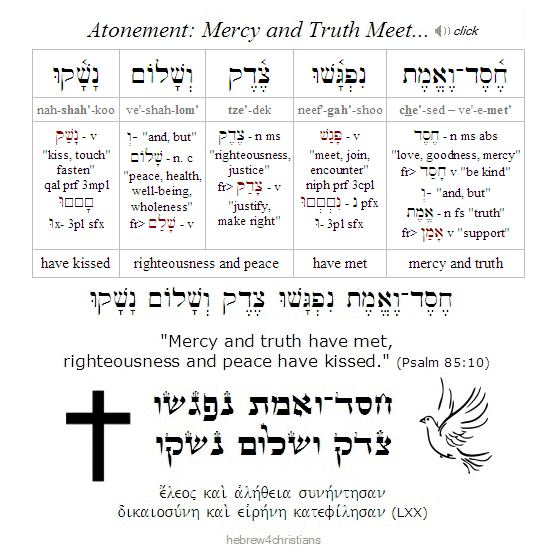|
Is there a blessing that comes from rebellion? Is there anything redeemable about protesting the status quo, objecting to the state of the world, refusing to accept reality, even if that has theological implications? In Dostoevsky's great novel the Brothers Karamazov, a character named Ivan takes issue with his devout brother Alyosha's unquestioning faith in God. Even though Ivan would like to believe that this is the "best of all possible worlds," and that God indeed works "all things together for good," he stumbles over the ongoing presence of moral evil in the world. For instance, Ivan insists that nothing could possibly justify the torture of a five year old little girl who was chained to an outhouse and left to die in the Russian winter. He objects that somehow this awful suffering may be part of God's great plan for the ages. The same sort of objection may be expressed regarding the rise of Hitler and the Nazi Holocaust and other obvious cases of grotesque moral evil in our world. A rebel like Ivan cannot "accept such a universe," even if it is true that one day God will wipe away every tear from the eyes of everyone.
But is there anything to learn here? Can the rebel teach us anything or impart to us any wisdom? Well, for one thing, we observe that the rebel lacks patience and begrudges faith that God is ultimately good. He sees the cup as "half-empty" rather than "half-full." His lack of trust, however, serves as a warning for us. Doubt cries out, "Let's put truth to the test," though the truth eventually swallows up doubt and brings to silence the rebel's protest. This was the solution given in the Book of Job, after all, when God overwhelmed Job from the midst of the whirlwind. As Kierkegaard wrote: "Speak, raise your voice, cry out. God can speak even louder: all the thunder is at His disposal. And thunder is the answer, it is the explanation: firm, trustworthy, primordial. God's answer, even if it smashes man to pieces, is superior to all the chattering of human wisdom."
In my own darkest moments of despair and doubt, I have been jarred back to reality after personally encountering radical evil - either that which arose from within my own heart or that which was committed by others in this world. After all, how can we explain the inexplicable cruelty and madness of human beings - war, murder, rape, abortion, genocide, the breakup of families over selfish desires, and so on - without invoking the category of real moral evil? Yet evil, by itself, is entirely senseless apart from real moral goodness, and therefore the rebel's cry is often the call for transcendental justice... Nonetheless the rebel can't have it both ways; he can't consistently object to the existence of moral evil in the universe apart from appealing to God's holiness and the existence of moral truth. It's been said that while the man of faith must must wrestle with the "problem of evil," the faithless man must wrestle with the "problem of goodness."
Often a disease must "declare itself" to be identified, treated, and hopefully cured. Likewise with our struggle with sinful impulses and the disease of our own divided hearts. Sin "forces the hand" of truth by revealing our own ambivalence, our own inner darkness, our own fears, doubts, lusts, and so on. The rise of sinful impulses and rebellious desire serve as warning signals... Indignation, disgust, and even shame are the voice of protest from our higher nature, appealing to the greater truth that we are God's children, called to walk with God, to mirror His character, and to exist on a different level. We see this in the case of Korah, whose rebellion ultimately revealed God's truth, and whose name was later associated with twelve great Psalms in the Scriptures. In one of these Psalms we read how the sons of Korah learned the meaning of the gospel itself by considering God's love despite the sins and failures of the past: "Steadfast love and truth have met; righteousness and peace have kissed" (Psalm 85:10).
חסד־ואמת נפגשׁו
צדק ושׁלום נשׁקו
che'·sed · ve·e·met · neef·ga'·shoo
tze'dek · ve·sha·lom · na·sha'·koo

"Love and truth have met,
justice and peace have kissed."
Download Study Card


Is there any good that comes from rebellion? Again, only to serve as a warning, and sometimes we need to be warned... The fire pans of the 250 rebels who followed Korah and died in the fire were later hammered and made into part of the altar. God was able to take the very means of their rebellion (i.e., the fire pans) to serve His purposes. Moreover, the "blessed fault" of our sin and rebellion helps us to profoundly understand our great (and ongoing) need for God's grace and forgiveness. Only the rebel who turns to God in teshuvah can understand the deepest expression of God's love...
Korah serves as a warning to us all. He took the hard road, and his followers learned the hard way... He was a "taker," and being a taker means that he was a slave, in bondage to the yetzer hara (evil impulse). Takers see the world as something "out there" to be exploited, consumed, and used. To deal with the "Korah within" each of us - the rebel, the complaining child, etc., - we must first confess the truth about the damage we've done by our own "taking," that is, by making our own selfish demands on others, and so on. To be healed, we have to revisit the depths of our hell to acknowledge and confess the impulse of our own "inner rebel." In the end, only the LORD our God can deliver us from evil.
|




